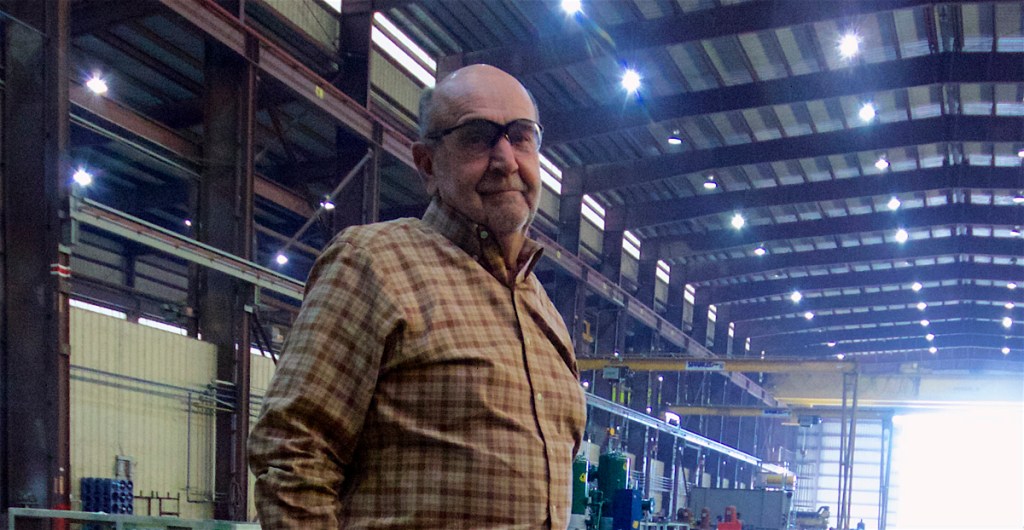Continuing port growth a challenge
Published 10:00 am Tuesday, January 22, 2019

- Craig Romero has brought all his connections and experience from years in business and politics to his role as the executive director for the Port of Iberia.
Craig Romero has worked in multiple roles during his career in Iberia Parish.
Trending
Romero spent 25 years with Frank’s International, then Frank’s Casing Crew, learning the ins and outs of the oil industry. He has served as Iberia Parish president. He has represented the parish as a state senator.
Currently, he brings all of the connections and experience from those jobs to his current challenge — executive director for the Port of Iberia.
He’ll need every trick, every favor, every contact he has made to help continue the port’s growth. The downturn in the energy sector hits hard in a facility that used to count on oilfield revenue and customers for the bulk of its client base. Nonetheless, the port has managed to stay busy and is seeing some signs of growth as the port’s clients continue to adjust to the new normal on the Gulf Coast.
What is the biggest challenge facing the Port of Iberia?
Right now, the challenge is continuing to expand our footprint to increase our lease income. We added 100 (acres) in the fall, and are about to purchase another 40 acres right behind our office. As we strive to increase lease income. It puts us in a posture to get more leases and more clients as things ramp up.
What is the economic climate like for the port’s clients?
Trending
Well, we are not immune to the price of a barrel of oil. It’s all relative to that price. What we are seeing is a lot of activity in oil and gas, but not in our backyard. We have one company working on pipe for a project that will connect Louisiana to Canada. We have another that is fabricating modules for a petrochemical plant in Pennsylvania. Another is delivering its products to fracking fields in West Texas. The fact remains that the Port of Iberia has a history of providing projects to the rest of country. It’s amazing to see these projects fabricated in a Louisiana port going through the Panama Canal to Alaska.
What challenges do you face keeping the trained workforce the port’s clients need in this market?
There’s a lot of people from here that have gone to West Texas, the Dakotas and Pennsylvania, but they go there for 28 and 28, like working offshore. It is a struggle, because in essence we are competing with the government for a lot of those workers. We are growing more of the workers we need, through programs in our community colleges and at ULL. The university still has a world-class petroleum engineering school, but it also has an Industrial technology program that is one of the most popular and sought-after degrees. They are putting that sort of program in place at SLCC as well. That’s how you develop the skills employers desire when looking for employees.
Are there any signs that exploration in the Gulf of Mexico will heat back up?
BP just announced an expansion, a new discovery in the Gulf. They are in the final stages of making an investment decision on existing project, but that’s all deepwater work. Chevron also has a massive project that is continuing to go forward in deep water, and that has a direct effect on the Port of Iberia. Shell has the largest project on earth right now in the Gulf, and Bayou Companies has the contract to do all that that pipe, the umbilicals, everything.
But exploration on the shelf is not where it was. The Port of Iberia fabricated about 40 percent of construction in the shallow waters of the gulf. I don’t think you will see that again.


